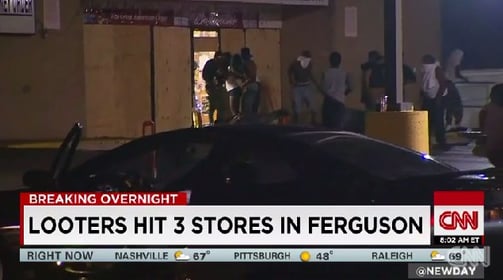By Nick Leghorn via The Truth About Guns
I’ve been arguing with my New York-based family for the last few days over Facebook. The argument always starts the same way. They post something from Huffington Post about how evil guns are, make a broad statement about “stopping the evil NRA” and then demand “something needs to be done!” They never offer any proposals offered beyond those by Hillary Clinton. When I’m done fisking their statements they run to the same old rhetoric for refuge . . .
President Obama used that line in the pro-gun control speech he gave before the bodies at Umpqua were cold. The Washington Post addressed the “issue” of gun prevalence in an post-Umopqua article attempting to present both “sides” of the gun control argument. Their very first question: would more guns prevent more deaths? While it’s an excellent thought experiment, it’s isn’t really germane to a discussion about school shootings.
After these horrific events, security experts always recommend the same thing: arming school guards. As Wayne LaPierre pointed out after the Sandy Hook Slaughter, we have armed guards for politicians, banks and convenience stores (and even gun control activists). Providing the same protection for our children while they’re at school is a natural extension of a common sense solution to the threat of armed attack.
The gun control crowd reject the idea out of hand. When it comes to our most precious resource (our children), the calculus suddenly changes. While they would never admit it publicly, gun control advocates would prefer to have more children die in school shootings than to see their ultimate goal of a gun-free America go down the tubes. Here’s who that works . . .
Gun control advocates all agree on one thing: guns are evil. They cause death. Any notion that a gun can be used to save life is dismissed as being against the accepted doctrine. Never mind thatdefensive gun uses happen quite frequently. Any use of a firearm – other than guns used by agents of the state – is beyond the pale, something no one in a civilized society should even contemplate. Something that must be stopped.
Working from this doctrinaire view of the world, they get behind any law that promises to reduce the number of guns in the U.S. Similarly, they refuse to consider any piece of legislation that seeks to ease restrictions and increase the firearms availability. Arming school guards? Placing talismans of death in the same location as precious, angelic children? That’s totally unacceptable.
The majority of Americans just want their children to be safe — “even” if that means having armed guards in school. To keep that dangerous notion from taking root, the gun control crowd needs to poison the proposition. “You just want more guns all over the place! More guns aren’t the answer! How can more guns possibly make people safer? Guns kill people!”
Reducing gun ownership is the only acceptable solution to the “gun violence epidemic” (the one that doesn’t exist). Arming school guards means “putting more guns into more people’s hands.” It’s anathema to the antis’ indoctrinated base, who reject the idea without any additional thought, purely on an ideological basis. Their mainstream media enablers are also blind to the blindingly obvious “solution” to school slaughter.
After the Umpqua shooting, once the initial rush of coverage of a mass shooting settled down, the media gave air time to pro-gun talking heads. The “sickened” anti-gun journos framed the questions over “solutions” using the anti-gunnners’ playbook. You’re pro-gun. You want everyone to have a gun. How would more guns have stopped this tragedy? There were armed students there and it didn’t do anything to stop the slaughter.
Whether or not more guns = less crime, regardless of Americans’ right to arm themselves, the lack of discussion about arming school guards or other school personnel leaves children and young adults exposed to potential danger. The gun control crowd don’t have a good argument against arming school staff. Engaging in the discussion would risk their supporters actually thinking about the issue objectively. Which is why we should be talking about it again. Now.












![[VIDEO] What Are Ladies’ Holster Options For Lower Back Issues?](https://imagedelivery.net/sbm_lYeJbALkepJgtmRD5w/concealednation.org/2016/01/can-can-big-shebang-womens-carry-style.jpg/w=728,h=381)

